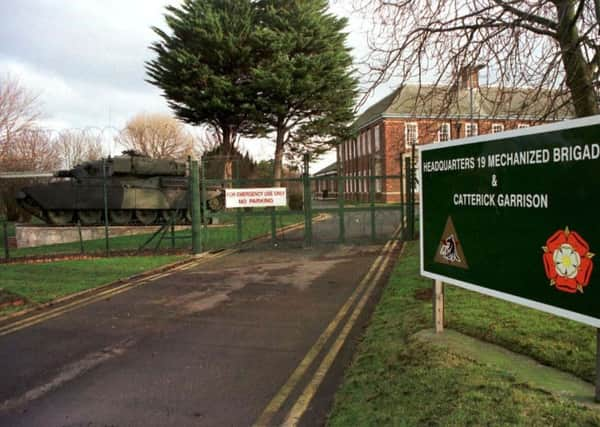Housing plans for military '˜are woefully short on details'


he Royal United Services Institute (RUSI) has told the Government it runs the risk of driving people away from the Armed Forces unless a “coherent and detailed” housing strategy is developed.
The think tank’s paper, entitled The Home Front: The Future Accommodation Model For The UK Armed Forces, calls on the MoD to make significant changes to housing provision if it is to stay “affordable and relevant”.
Advertisement
Hide AdAdvertisement
Hide AdThe paper suggests that the Armed Forces “should give increased priority to families’ accommodation” and recognise that it is a significant element in the overall employment offer.
While RUSI acknowledges that the MoD has recognised the need to reform through its Future Accommodation Model (FAM), the paper argues that the plans for this initiative are “woefully short on detail and methods of delivery, frustrating representatives of service families and other stakeholders”.
The authors underline that “there is significant unease that the current FAM ambition will drive people, potentially, to leave the military rather than properly aiding retention”.
Moreover, the report states that the FAM does not adequately address the reality that the Army, Royal Navy and Royal Air Force have differing needs and preferences for families’ living accommodation.
Advertisement
Hide AdAdvertisement
Hide AdRUSI also points to the sell off of more than 55,000 service family homes to Annington Property Limited in 1996 as “significant”.
The MoD was criticised in January after the National Audit Office (NAO) found the ministry was up to £4.2 billion worse off for the sale.
The MoD has since rented them back on 200-year underleases, and is paying more than £178 million a year for the remaining 39,000 properties.
RUSI’s report states that the sale has brought year-on-year financial obligations to the ministry that it is “struggling to manage effectively and to afford”.
Advertisement
Hide AdAdvertisement
Hide AdIn North Yorkshire, efforts to turn Catterick Garrison into a “super garrison” will see thousands more servicemen and women move into the town over the next 15 years.
Europe’s largest Army base is set to become one of the fastest growing towns in the country and will more than double in size when the number of service personnel based there increases by 50 per cent.
An MOD spokeswoman said: “We are committed to providing our troops with accommodation that meets their needs and is good value. In the last three years, we have invested over £500m in housing and pledged a further £1.8bn through our Army Basing Programme to build thousands of new homes across the UK.
“Our Future Accommodation Model will offer increased choice to a greater number of personnel and we have been clear we will consult troops and their families as this develops.”
In the short term, the paper recommends:
Advertisement
Hide AdAdvertisement
Hide AdThe Armed Forces should give increased priority to families’ accommodation within the employment offer. In particular, increased financial and MoD management resources should be allocated to families’ accommodation.
An Armed Forces Covenant Programme Office, arms’ length from the MoD, should be established, with the review and assurance of accommodation provision for the armed forces as one of its key responsibilities.
A full test and evaluation programme for the FAM should be developed now and managed as a coherent assessment phase programme.